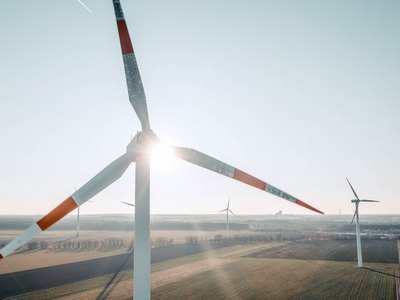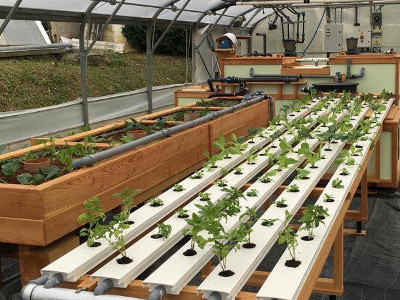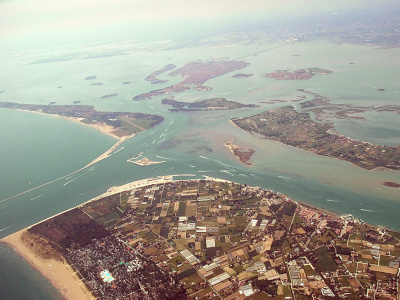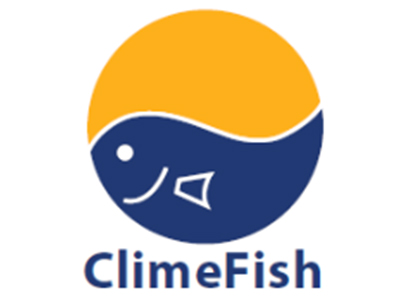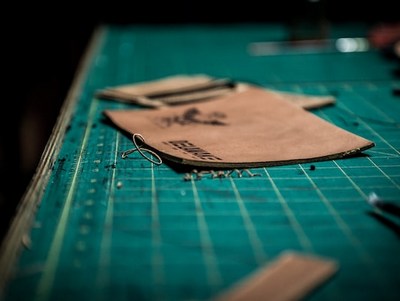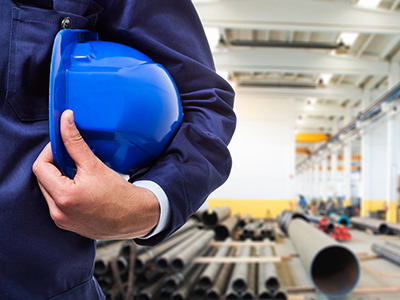This section presents all past projects related to Ca' Foscari's Global Challenges. To discover the on-going projects, please visit the page Projects.
SIGN-HUb: Preserving European Deaf Signing Communities
The project SIGN‐HUB ‐ Preserving, Researching and Fostering the Linguistic, Historical and Cultural Heritage of European Deaf Signing Communities with an Integral Resource ‐ aims to provide the first comprehensive response to the societal and scientific challenge resulting from generalized neglect of the cultural and linguistic identity of signing Deaf communities in Europe.
This Horizon 2020 project will provide an innovative and inclusive resource hub for the linguistic, historical and cultural documentation of the Deaf communities' heritage and for sign language assessment in clinical intervention and school settings.
To this end, it will create an open state‐of‐the‐art digital platform with customized accessible interfaces.
Project website / EU Cordis database
Researcher: Chiara Branchini
Duration: 01/04/2016 - 30/04/2020
Funding: Horizon 2020 Societal Challenges - Europe In A Changing World
Green Organic Agents for Sustainable Tanneries
Leather manufacturing is classified as water, energy and waste intensive and, according to European Directive 96/61EC, is considered to be an activity demanding for integrated prevention and control of pollution. Tannery effluents, if not properly treated, cause significant damage to soil and water bodies. Environmental concern clearly emerges from the European IPPC Bureau report 2013: at present over 85w% of the world leather production is chrome tanned and only 20-25w% of raw bovine hides processed are transformed in final leather goods. The current use of chrome poses serious environmental and health problems due to the formation of carcinogenic Cr (VI) in finished articles, prompting users to find innovative solutions. According to the EU directives, sustainable industrial processes and waste management are fundamental for ensuring a low level of risk and high environmental protection. LIFE GOAST project, with a LCA-LCC “cradle to grave approach”, will aim at demonstrating sustainability of the overall production chain from manufacturing of leather articles to treatment of solid and liquid wastes: the implementation of LIFE GOAST technology on a semi industrial scale will be demonstrated to be more environmental friendly than Traditional Chrome Tanning Process (TCTP). The ultimate aim is to obtain comparable/better quality leather product with lower environmental impact and costs, no concern substances disposal rather than TCTP.
Website
Researcher: Michela Signoretto
Duration: 01/07/2017 - 30/06/2020
EeMAP - Energy efficient Mortgages Action Plan
In the EU, buildings are responsible for 40% of total energy consumption and 36% of CO2 emissions. By improving the energy efficiency (EE) of buildings, the EU's total energy consumption could be reduced by 5-6% and CO2 emissions by 5%. Considering that the building stock constitutes the largest single energy consumer in the EU, and that the value of the European mortgage market is equal to 53% of EU’s GDP, there is huge potential to bridge financial innovation and the EE world and to unlock the benefits of mortgage financing to support EE to the benefit of all.The EeMAP Project intends to deliver a standardised framework based on a market benchmark to stimulate EE investment by households in the EU’s housing stock by way of a private banking financing mechanism. Three key outputs will be: a framework for a building energy passport, recording the EE history of a property by recognising the improvements made; a framework that can integrate the "green value" of a property through EE and collected market data; the framework for an EE mortgage product. Accordingly, EE investment will become financially viable, as market transparency will be improved. The Project will create synergies in the mortgage and covered bond value chain, delivering a virtuous circle between lenders, borrowers and investors from the origination of the energy efficient mortgage to the pooling of EE collateral for the purpose of energy efficient covered bonds. EeMAP has long-term potential to drive housing markets across Europe in a sustainable manner and encourage significant energy reductions in line with the EU’s aspirations and global climate change demands. Concretely, issuing 35,000 green mortgages a year can achieve savings of 88 GWh per annum.
Project website / EU Cordis database
Researcher: Monica Billio
Duration: 01/05/2017 - 31/03/2019
Funding: Horizon 2020 Societal Challeges - Secure, clean and efficient energy
Boosting green agrifood through aquaponics sustainable solutions
Aquaponics is an integrated production practice, strongly rooted on circular economy principles, which could lead to reduce impacts deriving from the agricultural sector: vegetables can be cultivated without the use of soil and limiting the water consumption up to 90%, if compared to traditional agricultural practices. In addition, this technique avoids the use of pesticides for plants, since these would harm the farmed fish, and it reduces energy consumption and greenhouse gases emissions. The project BLUEGRASS aims at introducing and sustaining the development of the Aquaponics technique in Italy and Slovenia (the area covered by the funding Interreg Programme).
Website
Researcher: Daniele Brigolin
Duration: 01/10/2017 - 30/03/2020
Life Lagoon Refresh
In the project "Coastal lagoon habitat (1150*) and species recovery by restoring the salt gradient increasing fresh water input" the concrete actions of recovery will be realized along the margin of the SCI Northern Venetian Lagoon, at the interface between lagoon and mainland. Among the main objectives: the diversion of a freshwater flow of approximately 1,000 l/s (action C1) from the river Sile into the lagoon - such action is necessary for the recreation of a salt gradient typical of buffer areas between lagoon and mainland, that has been artificially prevented in the course of the historical site management; the variation of bottom morphology through biodegradable structures, with a configuration designed in order to decrease the freshwater dispersion and favour reed bed development; the transplantation of turves or single rhizomes of Phragmites australis in order to accelerate reed bed formation and of small clumps of Ruppia cirrhosa, an aquatic species characterizing habitats 1150* and highly fed upon by waterfowl, with high degree of conservation and adapted to low salinity, to trigger and accelerate the recolonization of the area. The projects also aims at decreasing of the hunting and fishing pressure, by introducing a strict fishing regulation and involving local fishermen and hunters.
Project activities will be followed by an intensive environmental monitoring activity to verify the achievement of expected results and implement any useful corrective action (eg. regulation of freshwater flow). Parameters necessary to quantify recovery ecosystem services will be detected. The project also includes dissemination activities for both a general public and Italian and European specific targets.
Website
Researcher: Adriano Sfriso
Duration: 01/09/2016 - 31/08/2021
ClimeFIsh - Sustainable fish production under climate change
Ca’ Foscari scholars have been involved in the ClimeFish project, Co-creating a Decision Support Framework to ensure sustainable fish production in Europe under climate change.
ClimeFish is a Horizon 2020 project, which involves 21 academic and nonacademic partners from all over Europe and focuses on marine and freshwater fisheries and aquaculture, It aims to forecast effects of climate changes at the species and ecosystem level, creating responsive management schemes, and delivering a decision support framework cocreated with stakeholders.
Project website / EU Cordis database
Researcher: Fabio Pranovi
Duration: 01/04/2016 - 30/03/2020
BIOPOL - Leather making BioPolymers from biomasses and industrial by products
The LIFE BIOPOL project (Production of Leather making BioPolymers from biomasses and industrial by products, through Life Cycle Designed processes) aimed to demonstrate the technical performance and economic viability of an innovative process for producing new biopolymers (green chemicals) to be used in the tanning industry. These will be produced by recycling waste biomass from the related tanning process and agro-food industries. By doing so, the project aims to help implement the EU Industrial Emissions Directive, the BREF document, and the REACH (Registration, Evaluation, Authorisation and Restriction of Chemicals) Regulation, which all recommend that industry should decrease water consumption and the use of hazardous chemicals and pollutants such as heavy metals, formaldehyde, chromium, chlorinated paraffin, VOCs (volatile organic compounds) and inorganic salts.
Website
Researcher: Valentina Beghetto
Duration: 01/07/2016 - 30/09/2019
Smart manufacturing for EU Growth
"MAKERS -Smart Manufacturing for EU Growth and Prosperity" brings together leaders from business, academia and policy to study issues related to the drivers and dynamics of sustaining the competitiveness of EU manufacturing sectors.
The project’s innovative research, training and mobility activities address key concerns related to the historic opportunity for the EU to lead a manufacturing renaissance that not only upgrades existing manufacturing competences but, more importantly, develops new technological capabilities across EU regions to support regional industrial resilience for more distributed and sustainable socioeconomic growth and prosperity.
This project is funded by Horizon 2020 - Research and innovation Staff Exchange (RISE) and is developed at the Ca’ Foscari Economics Department.
Website
Researcher: Mario Volpe
Duration: 01/01/2016 - 31/12/2018
Chinese Labour in a Global Perspective
In the past few years, much has been written about a “rights awakening” allegedly undergoing among internal migrant workers in China.
But how do Chinese workers perceive their rights? What role do Chinese state and nonstate actors play in shaping this perception? And, more important, how will these shifting dynamics of Chinese labour activism affect the future of China as a “world factory”? This research, a Marie Curie Global fellowship won by Ivan Franceschini, will not only give a meaningful contribution to the academic debate, but will also provide European policy- makers, companies, trade unions and labour NGOs with much needed knowledge on how to address Chinese labour issues in this new phase of the globalization process.
Researcher: Renzo Cavalieri
Duration: 01/12/2015 - 30/11/2018



